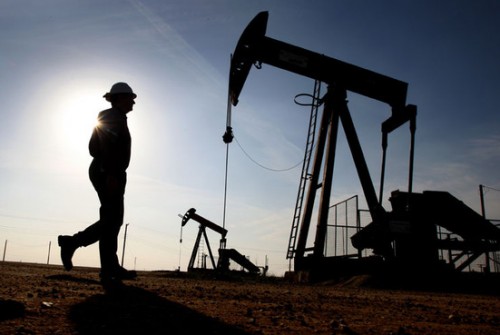Dinosaurs would be surprised to discover they have a key role in the 2012 Presidential election bid, as incumbent President Barack Obama is running from their remains as if being chased by T. Rex himself.
The Administration hates fossil fuels. The President and his advisors make this clear with words as well as policies that elevate economically unfeasible “green” energy while blocking production of cheap, available oil, gas and coal. In 2008, candidate Obama cheerfully claimed under his cap-and-trade plan “electricity rates would necessarily skyrocket.” Energy Secretary Steven Chu – then a UC Berkeley professor – noted that same year his desire to “boost the price of (U.S.) gasoline to levels in Europe.” Today, that price is above $10 per gallon.
Politicians trying to retain support from narrow special interests risk alienating the greater majority of voters. Such is the case with Obama’s “all of the above” energy position — really a “none of the below” anti-consumer shell game.
Americans know the main energy sources for cars, homes and businesses are below ground. Thirty-seven percent comes from petroleum, 25 from natural gas and 21 percent from coal. Nearly half America’s electricity is coal-generated versus 3.5 percent from wind and solar. Voters are aware the average price of gasoline has risen $2.10 a gallon since Obama took office.
Despite these realities, the President has made eliminating oil and coal use top priorities.
Mr. Obama instituted an offshore oil lease moratorium by withdrawing or denying permits for Atlantic and Pacific Coasts. These policies kill employment opportunities, reduce federal revenues critical to debt reduction, and continue dependence on Middle Eastern oil. The Administration’s putative regulations, excessive fees, and manipulation of environmental statutes are aimed at dismantling the coal industry. Dozens of coal plants could close as a result of new and pending EPA regulations, causing massive job losses in an industry where one job supports as many as eleven in related sectors.
In a disingenuous effort to appear supportive of all energy sources, the White House is backing the NAT GAS Act, introduced in February by House Democrats. It recently lacked votes to pass the Senate, which does not signal its end.
The Act creates market-distorting, taxpayer-funded incentives for companies manufacturing or purchasing trucks with Liquid Natural Gas engines. As our national debt exceeds GDP for the first time in history, supporters claim it will “only” cost taxpayers $5 billion. Other analysts fear it could approach $100 billion.
President Obama recently posed for pictures at a number of LNG-related facilities to pronounce the importance of fossil fuels. In April, he invited representatives from energy industries to the White House to serve as backdrop for his announcement of (yet another) task force to study energy development. But election-year photo ops do nothing to put money back into consumer pockets.
Natural gas is an integral part of America’s future energy strategy, but should not be elevated by politics above other hydrocarbons, especially given its price volatility. Billions of dollars taxpayers would pay under the NAT GAS Act would be unnecessary if LNG vehicles were already a wise economic choice not requiring subsidies; there is no large consumer demand.
Energy execs are not happy with Obama’s plan, nor are environmentalists. It is unlikely to provide political cover against accusations of Administration inaction on rising gasoline prices and wasteful investments of billions of taxpayer dollars in failed green energy companies.
Perhaps environmental groups suggested natural gas as an election-year compromise to solidify that base and attract independents. Or George Soros, who has enormous natural gas investments. Maybe even trial lawyers, already trolling for consumers who claim that fracking — a hydraulic drilling process breaking up solid mass to extract natural gas — has somehow affected water and air quality.
Americans want lower energy prices and supply from our own seas and soils. Investors, employers, and job-seekers want new opportunities for drilling U.S. reserves and expanding clean coal extraction technologies — economic activity already supported by the market without taxpayer cash.
We are not supposed to notice that the Administration’s “all of the above” energy policy is a slick double entendre. It is political fiction on a lopsided playing field that we are meant to believe.
As the White House makes placating noises about the importance of coal and petroleum, devastating policies imposed on these industries tell the real story.
Election year talk is cheap but energy costs are not. Voters will take note.

COMMENTS
Please let us know if you're having issues with commenting.